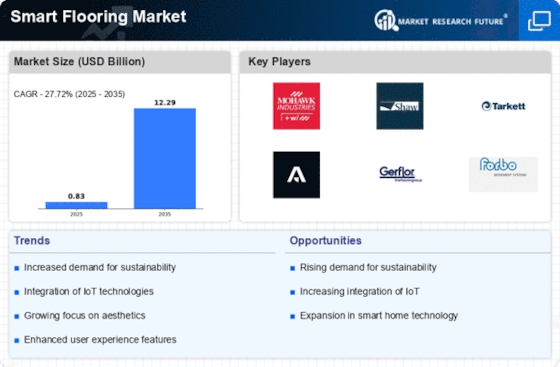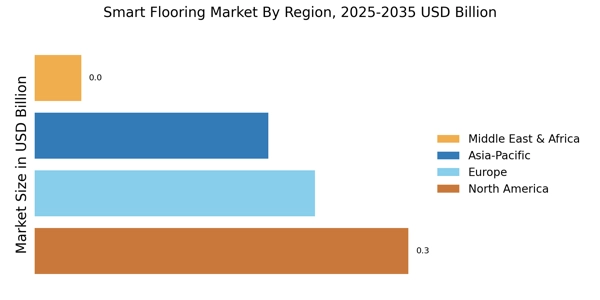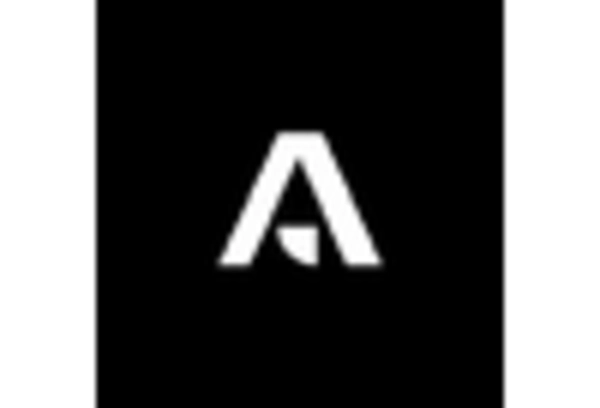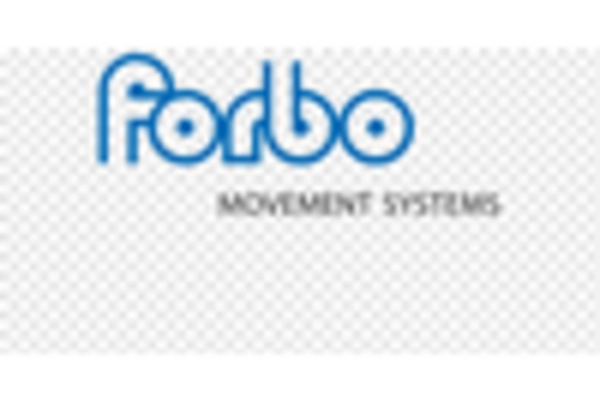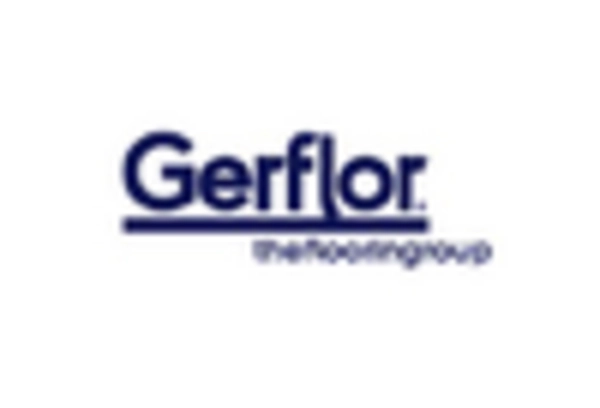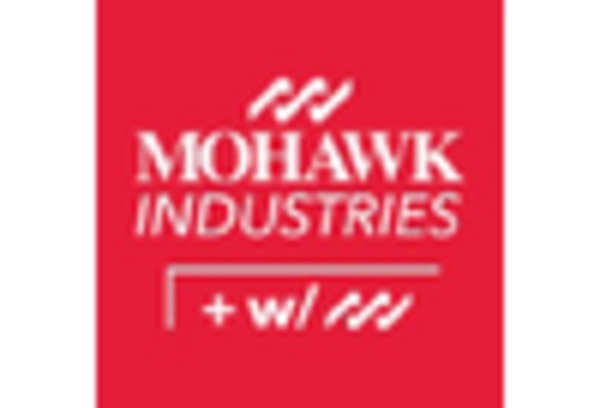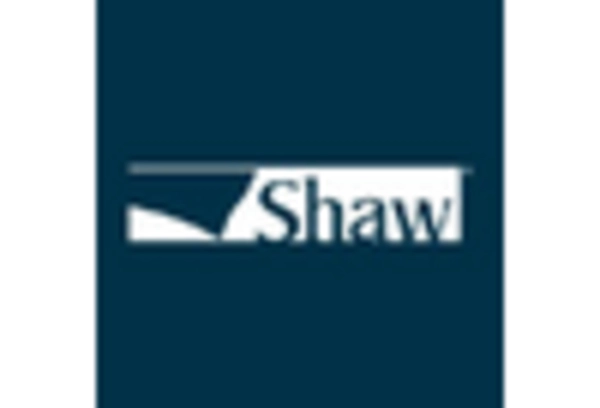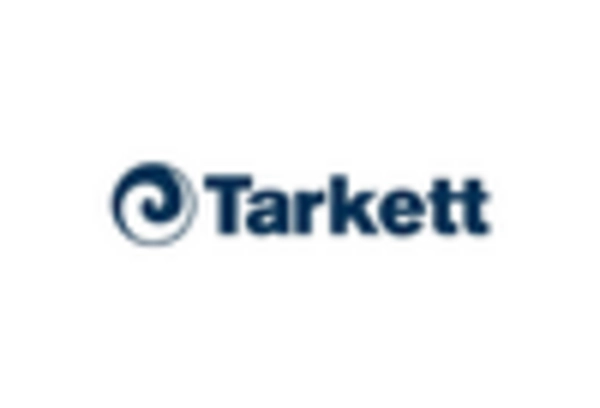Rising Demand for Smart Homes
The increasing trend towards smart homes is a pivotal driver for the Smart Flooring Market. As consumers seek to enhance their living environments with interconnected devices, smart flooring solutions that integrate seamlessly with home automation systems are gaining traction. According to recent data, the smart home market is projected to reach a valuation of over 150 billion dollars by 2025, indicating a robust growth trajectory. This surge in demand for smart home technologies is likely to propel the adoption of smart flooring solutions, which offer features such as energy efficiency, enhanced security, and convenience. Consequently, manufacturers are focusing on developing innovative flooring options that cater to this growing consumer preference, thereby driving the Smart Flooring Market forward.
Growing Awareness of Health and Safety
The heightened awareness of health and safety concerns is significantly influencing the Smart Flooring Market. Consumers are increasingly prioritizing flooring solutions that promote well-being, such as those that are hypoallergenic, antimicrobial, and easy to clean. This trend is particularly relevant in residential and commercial spaces where hygiene is paramount. Recent studies indicate that the demand for health-oriented flooring solutions is on the rise, with a notable increase in sales of smart flooring products that offer these benefits. As a result, manufacturers are adapting their offerings to meet these evolving consumer expectations, thereby driving growth in the Smart Flooring Market. This focus on health and safety is likely to continue shaping product development and marketing strategies in the coming years.
Sustainability and Eco-Friendly Solutions
Sustainability is becoming an essential consideration for consumers, significantly impacting the Smart Flooring Market. As environmental concerns rise, there is a growing demand for eco-friendly flooring options that utilize sustainable materials and production processes. Smart flooring solutions that incorporate recycled materials or are designed for energy efficiency are increasingly appealing to environmentally conscious consumers. Market data suggests that the eco-friendly flooring segment is expected to grow at a rate of 15% annually, reflecting a shift towards sustainable living. Manufacturers are responding to this trend by developing innovative products that not only meet aesthetic and functional needs but also align with sustainability goals, thereby enhancing their competitiveness in the Smart Flooring Market.
Increased Investment in Smart Infrastructure
The surge in investment in smart infrastructure is a key driver for the Smart Flooring Market. Governments and private sectors are increasingly allocating funds towards the development of smart cities, which incorporate advanced technologies into urban planning and infrastructure. This trend is likely to create substantial opportunities for smart flooring solutions that can integrate with other smart systems, such as energy management and security. Recent reports indicate that investments in smart infrastructure are projected to exceed 1 trillion dollars by 2025, highlighting the potential for growth in related markets. As cities evolve to become more interconnected, the demand for smart flooring that enhances functionality and user experience is expected to rise, thereby propelling the Smart Flooring Market.
Technological Advancements in Flooring Solutions
Technological advancements play a crucial role in shaping the Smart Flooring Market. Innovations such as advanced sensors, wireless connectivity, and artificial intelligence are being integrated into flooring products, enhancing their functionality and appeal. For instance, smart flooring can now monitor foot traffic, detect falls, and even adjust temperature settings based on user preferences. The market for smart flooring solutions is expected to witness a compound annual growth rate of approximately 20% over the next five years, driven by these technological enhancements. As manufacturers continue to invest in research and development, the introduction of new features and capabilities is likely to attract a broader consumer base, further propelling the Smart Flooring Market.


